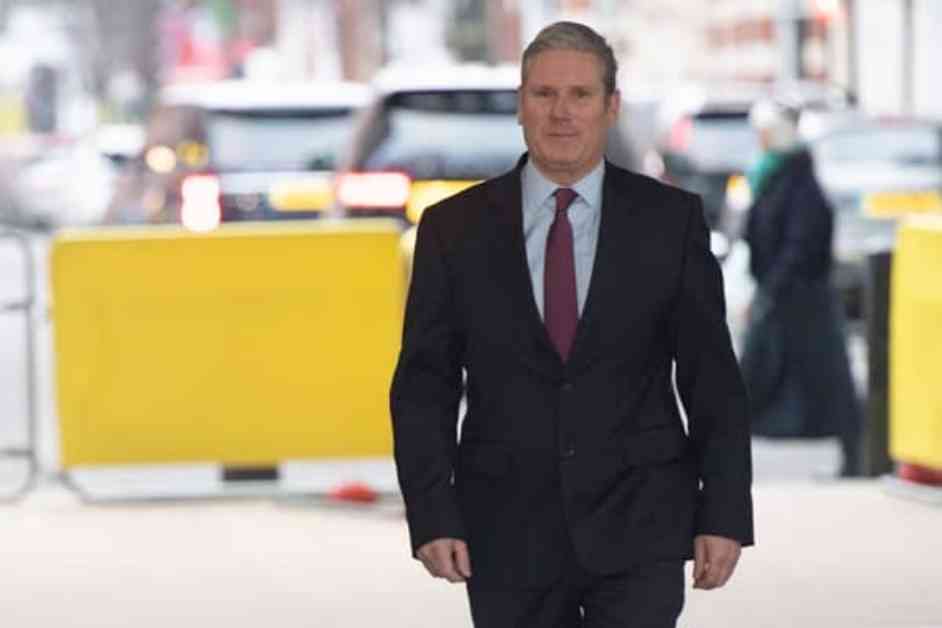Keir Starmer Faces Backlash Over Scrapping Winter Fuel Payments at PMQs
In a fiery exchange during Prime Minister’s Questions (PMQs) on Wednesday, Sir Keir Starmer faced backlash over the government’s decision to scrap winter fuel payments. The Prime Minister, Rishi Sunak, was met with shouts of “shame” from MPs as he defended the controversial move.
Sunak justified the decision by stating, “Government is about making choices, and the new Prime Minister has made a choice. (Sir Keir) has chosen to take the winter fuel allowance away from low-income pensioners and give that money to certain unionised workforces in inflation-busting pay rises. So can I just ask the Prime Minister, why did he choose train drivers over Britain’s vulnerable pensioners?”
In response, Starmer defended the government’s actions, stating, “This Government was elected to clear up the mess left by the party opposite, to bring about the change that the country desperately needs. Our first job was to audit the books, and what we found was a £22 billion black hole.”
Starmer emphasized the need to stabilize the economy and repair the damage left by the previous government. He highlighted that 800,000 pensioners were not taking up pension credit and outlined plans to align housing benefit and pension credit to address this issue.
Public Finances and Tough Decisions
Both Sunak and Starmer underscored the importance of prioritizing the public finances, albeit with differing approaches. Sunak criticized Starmer’s decision to award a pay rise to train drivers while removing winter fuel payments for low-income pensioners.
Sunak questioned Starmer’s motives, stating, “If, as he says, the public finances are a priority, it was his decision and his decision alone to award a train driver on £65,000 a pay rise of almost £10,000, and it was also his decision that a pensioner living on just £13,000 will have their winter fuel allowance removed. So can the Prime Minister explain to Britain’s low-income pensioners why he has taken money away from them whilst at the same time given more money to highly paid train drivers?”
Starmer defended the government’s actions as necessary to address the economic challenges inherited from the previous administration. He reiterated the need to make tough decisions to stabilize the economy and ensure financial sustainability.
Impact on Pensioners and Workforce
The decision to scrap winter fuel payments has sparked outrage among low-income pensioners who rely on this support during the colder months. Many pensioners expressed concern over the impact of losing this vital financial assistance, particularly in the face of rising energy costs.
On the other hand, the government’s move to prioritize pay rises for certain unionized workforces has been met with mixed reactions. While some applaud the decision to boost wages for essential workers, others question the allocation of funds at the expense of vulnerable pensioners.
The debate over the distribution of resources between pensioners and the workforce highlights the complex challenges facing the government in balancing competing priorities and addressing the needs of different segments of society.
Growing Calls for Transparency and Accountability
As the controversy surrounding the scrapping of winter fuel payments continues to escalate, there are growing calls for transparency and accountability in the government’s decision-making process. Critics argue that the lack of consultation and communication regarding the policy change has left many pensioners feeling marginalized and neglected.
Additionally, concerns have been raised about the impact of the decision on the most vulnerable members of society, particularly those living on fixed incomes and struggling to make ends meet. The government is facing mounting pressure to justify its actions and provide reassurance to those affected by the policy shift.
In response to the backlash, the government has reiterated its commitment to addressing the economic challenges facing the country and ensuring financial stability. However, the ongoing debate over the allocation of resources and the impact on different segments of society underscores the need for greater clarity and accountability in decision-making processes.
Overall, the controversy over the scrapping of winter fuel payments highlights the complexities of governance and the competing demands placed on policymakers. As the government grapples with these challenges, the need for transparency, fairness, and effective communication remains paramount in navigating the path forward.




